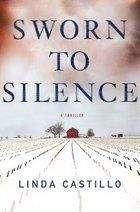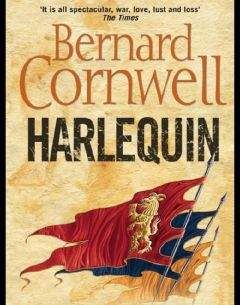Michael Ondaatje - The English Patient

Скачивание начинается... Если скачивание не началось автоматически, пожалуйста нажмите на эту ссылку.
Жалоба
Напишите нам, и мы в срочном порядке примем меры.
Описание книги "The English Patient"
Описание и краткое содержание "The English Patient" читать бесплатно онлайн.
He sat down with the carafe of wine the monks from the monastery had given Hana. It was Hana’s house and he moved carefully, rearranging nothing. He noticed her civilisation in the small wildflowers, the small gifts to herself. Even in the overgrown garden he would come across a square foot of grass snipped down with her nurse’s scissors. If he had been a younger man he would have fallen in love with this.
He was no longer young. How did she see him? With his wounds, his unbalance, the grey curls at the back of his neck. He had never imagined himself to be a man with a sense of age and wisdom. They had all grown older, but he still did not feel he had wisdom to go with his aging.
He crouched down to watch the dog drinking and he rebalanced himself too late, grabbing the table, upsetting the carafe of wine.
Your name is David Caravaggio, right?
They had handcuffed him to the thick legs of an oak table. At one point he rose with it in his embrace, blood pouring away from his left hand, and tried to run with it through the thin door and falling. The woman stopped, dropping the knife, refusing to do more. The drawer of the table slid out and fell against his chest, and all its contents, and he thought perhaps there was a gun that he could use. Then Ranuccio Tommasoni picked up the razor and came over to him. Caravaggio, right? He still wasn’t sure.
As he lay under the table, the blood from his hands fell into his face, and he suddenly thought clearly and slipped the handcuff off the table leg, flinging the chair away to drown out the pain and then leaning to the left to step out of the other cuff. Blood everywhere now. His hands already useless. For months afterwards he found himself looking at only the thumbs of people, as if the incident had changed him just by producing envy. But the event had produced age, as if during the one night when he was locked to that table they had poured a solution into him that slowed him.
He stood up dizzy above the dog, above the red wine-soaked table. Two guards, the woman, Tommasoni, the telephones ringing, ringing, interrupting Tommasoni, who would put down the razor, caustically whisper Excuse me and pick up the phone with his bloody hand and listen. He had, he thought, said nothing of worth to them. But they let him go, so perhaps he was wrong.
Then he had walked along the Via di Santo Spirito to the one geographical location he had hidden away in his brain. Walked past Brunelleschi’s church towards the library of the German Institute, where he knew a certain person would look after him. Suddenly he realized this was why they had let him go. Letting him walk freely would fool him into revealing this contact. He arced into a side street, not looking back, never looking back. He wanted a street fire so he could stanch his wounds, hang them over the smoke from a tar cauldron so black smoke would envelop his hands. He was on the Santa Trinità Bridge. There was nothing around, no traffic, which surprised him. He sat on the smooth balustrade of the bridge, then lay back. No sounds. Earlier, when he had walked, his hands in his wet pockets, there had been the manic movement of tanks and jeeps.
As he lay there the mined bridge exploded and he was flung upwards and then down as part of the end of the world. He opened his eyes and there was a giant head beside him. He breathed in and his chest filled with water. He was underwater. There was a bearded head beside him in the shallow water of the Arno. He reached towards it but couldn’t even nudge it. Light was pouring into the river. He swam up to the surface, parts of which were on fire.
When he told Hana the story later that evening she said, “They stopped torturing you because the Allies were coming. The Germans were getting out of the city, blowing up bridges as they left.”
“I don’t know. Maybe I told them everything. Whose head was it? There were constant phone calls into that room. There would be a hush, and the man would pull back from me, and all of them would watch him on the phone listening to the silence of the other voice, which we could not hear. Whose voice? Whose head?”
“They were leaving, David.”
She opens The Last of the Mohicans to the blank page at the back and begins to write in it.
There is a man named Caravaggio, a friend of my father’s. I have always loved him. He is older than I am, about forty-five, I think. He is in a time of darkness, has no confidence. For some reason I am cared for by this friend of my father.
She closes the book and then walks down into the library and conceals it in one of the high shelves.
The Englishman was asleep, breathing through his mouth as he always did, awake or asleep. She got up from her chair and gently pulled free the lit candle held in his hands. She walked to the window and blew it out there, so the smoke went out of the room. She disliked his lying there with a candle in his hands, mocking a deathlike posture, wax falling unnoticed onto his wrist. As if he was preparing himself, as if he wanted to slip into his own death by imitating its climate and light.
She stood by the window and her fingers clutched the hair on her head with a tough grip, pulling it. In darkness, in any light after dusk, you can slit a vein and the blood is black.
She needed to move from the room. Suddenly she was claustrophobic, untired. She strode down the hall and leapt down the stairs and went out onto the terrace of the villa, then looked up, as if trying to discern the figure of the girl she had stepped away from. She walked back into the building. She pushed at the stiff swollen door and came into the library and then removed the boards from the French doors at the far end of the room, opening them, letting in the night air. Where Caravaggio was, she didn’t know. He was out most evenings now, usually returning a few hours before dawn. In any case there was no sign of him.
She grabbed the grey sheet that covered the piano and walked away to a corner of the room hauling it in after her, a winding-cloth, a net of fish.
No light. She heard a far grumble of thunder.
She was standing in front of the piano. Without looking down she lowered her hands and started to play, just chording sound, reducing melody to a skeleton. She paused after each set of notes as if bringing her hands out of water to see what she had caught, then continued, placing down the main bones of the tune. She slowed the movements of her fingers even more. She was looking down as two men slipped through the French doors and placed their guns on the end of the piano and stood in front of her. The noise of chords still in the air of the changed room.
Her arms down her sides, one bare foot on the bass pedal, continuing with the song her mother had taught her, that she practised on any surface, a kitchen table, a wall while she walked upstairs, her own bed before she fell asleep. They had had no piano. She used to go to the community centre on Saturday mornings and play there, but all week she practised wherever she was, learning the chalked notes that her mother had drawn onto the kitchen table and then wiped off later. This was the first time she had played on the villa’s piano, even though she had been here for three months, her eye catching its shape on her first day there through the French doors. In Canada pianos needed water. You opened up the back and left a full glass of water, and a month later the glass would be empty. Her father had told her about the dwarfs who drank only at pianos, never in bars. She had never believed that but had at first thought it was perhaps mice.
A lightning flash across the valley, the storm had been coming all night, and she saw one of the men was a Sikh. Now she paused and smiled, somewhat amazed, relieved anyway, the cyclorama of light behind them so brief that it was just a quick glimpse of his turban and the bright wet guns. The high flap of the piano had been removed and used as a hospital table several months earlier, so their guns lay on the far side of the ditch of keys. The English patient could have identified the weapons. Hell. She was surrounded by foreign men. Not one pure Italian. A villa romance. What would Poliziano have thought of this 1945 tableau, two men and a woman across a piano and the war almost over and the guns in their wet brightness whenever the lightning slipped itself into the room filling everything with colour and shadow as it was doing now every half-minute thunder crackling all over the valley and the music antiphonal, the press of chords, When I take my sugar to tea …
Do you know the words?
There was no movement from them. She broke free of the chords and released her fingers into intricacy, tumbling into what she had held back, the jazz detail that split open notes and angles from the chestnut of melody.
When I take my sugar to tea
All the boys are jealous of me,
So I never take her where the gang goes
When I take my sugar to tea.
Their clothes wet while they watched her whenever the lightning was in the room among them, her hands playing now against and within the lightning and thunder, counter to it, filling up the darkness between light. Her face so concentrated they knew they were invisible to her, to her brain struggling to remember her mother’s hand ripping newspaper and wetting it under a kitchen tap and using it to wipe the table free of the shaded notes, the hopscotch of keys. After which she went for her weekly lesson at the community hall, where she would play, her feet still unable to reach the pedals if she sat, so she preferred to stand, her summer sandal on the left pedal and the metronome ticking.
She did not want to end this. To give up these words from an old song. She saw the places they went, where the gang never went, crowded with aspidistra. She looked up and nodded towards them, an acknowledgement that she would stop now.
Caravaggio did not see all this. When he returned he found Hana and the two soldiers from a sapper unit in the kitchen making up sandwiches.
III
Sometime a Fire
THE LAST MEDIAEVAL WAR was fought in Italy in 1943 and 1944. Fortress towns on great promontories which had been battled over since the eighth century had the armies of new kings flung carelessly against them. Around the outcrops of rocks were the traffic of stretchers, butchered vineyards, where, if you dug deep beneath the tank ruts, you found blood-axe and spear. Monterchi, Cortona, Urbino, Arezzo, Sansepolcro, Anghiari. And then the coast.
Cats slept in the gun turrets looking south. English and Americans and Indians and Australians and Canadians advanced north, and the shell traces exploded and dissolved in the air. When the armies assembled at Sansepolcro, a town whose symbol is the crossbow, some soldiers acquired them and fired them silently at night over the walls of the untaken city. Field Marshal Kesselring of the retreating German army seriously considered the pouring of hot oil from battlements.
Mediaeval scholars were pulled out of Oxford colleges and flown into Umbria. Their average age was sixty. They were billeted with the troops, and in meetings with strategic command they kept forgetting the invention of the airplane. They spoke of towns in terms of the art in them. At Monterchi there was the Madonna del Parto by Piero della Francesca, located in the chapel next to the town graveyard. When the thirteenth-century castle was finally taken during the spring rains, troops were billeted under the high dome of the church and slept by the stone pulpit where Hercules slays the Hydra. There was only bad water. Many died of typhoid and other fevers. Looking up with service binoculars in the Gothic church at Arezzo soldiers would come upon their contemporary faces in the Piero della Francesca frescoes. The Queen of Sheba conversing with King Solomon. Nearby a twig from the Tree of Good and Evil inserted into the mouth of the dead Adam. Years later this queen would realize that the bridge over the Siloam was made from the wood of this sacred tree.
It was always raining and cold, and there was no order but for the great maps of art that showed judgement, piety and sacrifice. The Eighth Army came upon river after river of destroyed bridges, and their sapper units clambered down banks on ladders of rope within enemy gunfire and swam or waded across. Food and tents were washed away. Men who were tied to equipment disappeared. Once across the river they tried to ascend out of the water. They sank their hands and wrists into the mud wall of the cliff face and hung there. They wanted the mud to harden and hold them.
The young Sikh sapper put his cheek against the mud and thought of the Queen of Sheba’s face, the texture of her skin. There was no comfort in this river except for his desire for her, which somehow kept him warm. He would pull the veil off her hair. He would put his right hand between her neck and olive blouse. He too was tired and sad, as the wise king and guilty queen he had seen in Arezzo two weeks earlier.
He hung over the water, his hands locked into the mud-bank. Character, that subtle art, disappeared among them during those days and nights, existed only in a book or on a painted wall. Who was sadder in that dome’s mural? He leaned forward to rest on the skin of her frail neck. He fell in love with her downcast eye. This woman who would someday know the sacredness of bridges.
At night in the camp bed, his arms stretched out into distance like two armies. There was no promise of solution or victory except for the temporary pact between him and that painted fresco’s royalty who would forget him, never acknowledge his existence or be aware of him, a Sikh, halfway up a sapper’s ladder in the rain, erecting a Bailey bridge for the army behind him. But he remembered the painting of their story. And when a month later the battalions reached the sea, after they had survived everything and entered the coastal town of Cattolica and the engineers had cleared the beach of mines in a twenty-yard stretch so the men could go down naked into the sea, he approached one of the mediaevalists who had befriended him—who had once simply talked with him and shared some Spam—and promised to show him something in return for his kindness.
The sapper signed out a Triumph motorbike, strapped a crimson emergency light onto his arm, and they rode back the way they had come—back into and through the now innocent towns like Urbino and Anghiari, along the winding crest of the mountain ridge that was a spine down Italy, the old man bundled up behind him hugging him, and down the western slope towards Arezzo. The piazza at night was empty of troops, and the sapper parked in front of the church. He helped the mediaevalist off, collected his equipment and walked into the church. A colder darkness. A greater emptiness, the sound of his boots filling the area. Once more he smelled the old stone and wood. He lit three flares. He slung block and tackle across the columns above the nave, then fired a rivet already threaded with rope into a high wooden beam. The professor was watching him bemused, now and then peering up into the high darkness. The young sapper circled him and knotted a sling across his waist and shoulders, taped a small lit flare to the old man’s chest.
Подписывайтесь на наши страницы в социальных сетях.
Будьте в курсе последних книжных новинок, комментируйте, обсуждайте. Мы ждём Вас!
Похожие книги на "The English Patient"
Книги похожие на "The English Patient" читать онлайн или скачать бесплатно полные версии.
Мы рекомендуем Вам зарегистрироваться либо войти на сайт под своим именем.
Отзывы о "Michael Ondaatje - The English Patient"
Отзывы читателей о книге "The English Patient", комментарии и мнения людей о произведении.







